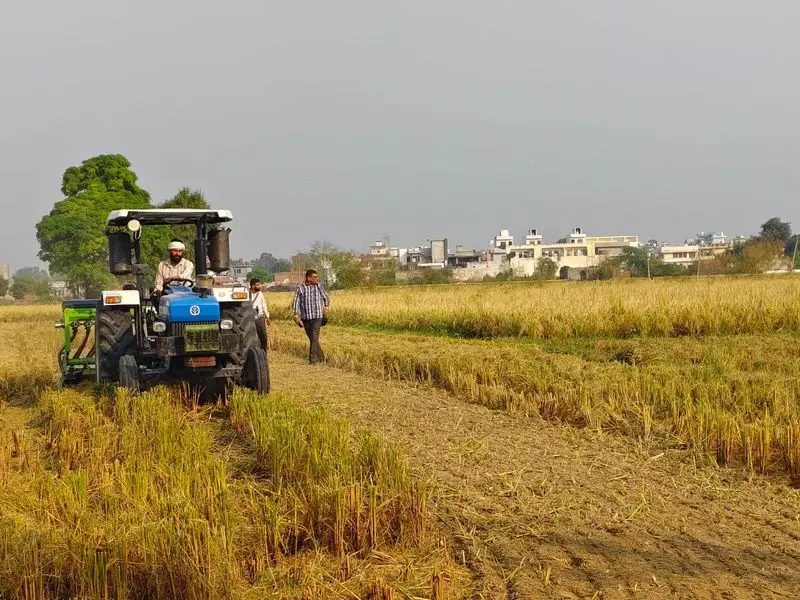
In a significant move to combat the annual air pollution crisis, Karnal district in Haryana has dramatically expanded its in-situ stubble management program to cover an impressive 1.5 lakh acres of farmland. This ambitious initiative represents a major step forward in the fight against stubble burning, which has been a primary contributor to the deteriorating air quality in Delhi-NCR and surrounding regions.
Massive Scale-Up in Agricultural Innovation
The district administration has successfully increased the coverage area from last year's 85,000 acres to a staggering 150,000 acres this season. This expansion demonstrates the growing commitment among farmers and local authorities to adopt sustainable agricultural practices that benefit both the environment and soil health.
Comprehensive Implementation Strategy
According to officials, the enhanced program incorporates multiple approaches to ensure effective stubble management:
- Distribution of advanced agricultural machinery including super seeders, happy seeders, and mulchers
- Establishment of custom hiring centers to make equipment accessible to small and marginal farmers
- Intensive awareness campaigns about the benefits of in-situ management
- Technical support and training sessions for farmers on proper implementation techniques
Environmental Impact and Benefits
The expanded program is expected to make a substantial impact on reducing air pollution levels during the critical post-monsoon period. By preventing the burning of crop residue across 150,000 acres, the initiative will:
- Significantly reduce particulate matter and greenhouse gas emissions
- Improve soil fertility through natural decomposition of organic matter
- Conserve soil moisture and enhance water retention capacity
- Reduce dependency on chemical fertilizers
- Contribute to overall ecosystem health
Farmer Participation and Response
Local farmers have shown remarkable enthusiasm for the program, recognizing both the environmental imperative and the long-term agricultural benefits. The administration has reported overwhelming participation across all blocks of the district, with many farmers voluntarily adopting these practices after witnessing the positive results from previous seasons.
This proactive approach by Karnal district sets a powerful precedent for other agricultural regions in northern India, demonstrating that sustainable farming and environmental protection can go hand in hand with productive agriculture.





